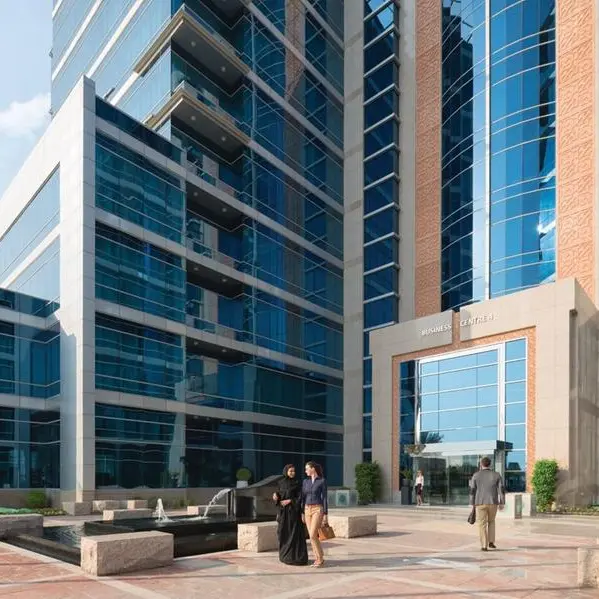23 July 2012
The MENA private equity industry showed signs of recovery in the first six months of 2012 with deals worth USD 362 million being struck in the period, compared to USD 46.29 million of transactions in the same period of 2011.
As many as 41 deals were completed in the period, compared to 35 in the first six months of 2011. This includes six deals in Levant and GCC countries, targeting sectors such as media, internet technology and healthcare, that is not yet public domain information. Another six deals are currently under negotiation.
The return of deal-making indicates that funds have started deploying the USD 5 billion of dry powder they have been stacking in their accounts for the past two years.
Five exits were registered during the first six months of 2012, the same as the number recorded in H1-2011. The stagnant exit activity was greatly altered in July, however, which witnessed five more exit operations within the first 17 days of the months, an indication that Limited Partners can hope to soon start reaping the fruits of their commitments in the PE funds.
What matters to the LPs is the return they get on their investments, and the example of Amwal Al Khaleej's exit from Al Tayyar Travel Group, which generated very high returns for the GP's Amwal Fund I, is a positive sign in that direction.
Fund launches and announcements continued to be made. As many as 17 funds have been announced this year, the majority of which are focused on venture and growth capital investments. This is a continuation of the trend that began two years ago.
Tunisia alone witnessed the launch of five PE funds, two of which are the first Shariah-compliant funds in the North African country. The five combined seek to raise an initial TND 186.27 million. Egypt and Morocco witnessed three launches, validating earlier predictions that North African countries that have weathered the Arab Spring will offer investment opportunities for private equity firms once order and stability are restored.
Libya is expected to make a strong showing on the PE funds front as the International Monetary Fund has forecast a whopping 116.6% GDP growth this year and strong figures for coming years. The country is expected to become one of the most attractive targets for PE firms in the near future.
Of the 17 launches this year, a majority of five are MENA-focused funds.
The real focus in the region, however, is on the mammoth Saudi market. The Saudi private equity space is opaque, with very limited flow of information, preventing a credible analysis of trends. But some facts prove that private equity can flourish in the country.
Saudi Arabia is home to numerous wealthy individual and institutional investors with huge amounts of deployable cash that could be allocated to PE funds. The kingdom's renewed focus on building up its education and healthcare sectors - with more than 50% of the budget directed towards these sectors - provides an expanding opportunity for PE funds and investors.
It would be PE-positive if the Saudi government invites and involves the private sector in the construction and management of education and healthcare facilities. However, if the government becomes a competitor to the private sector, it will become a hurdle for PE firms and funds to invest in the Saudi market.
Family-owned businesses in the kingdom could also benefit from the presence of a PE fund on their directors' table, where funds can supply these companies with the needed liquidity in addition to more efficient and better management methods.
Private equity in the MENA region is still a nascent sector; the cash raised by PE funds in the region over the past 10 years amounts to only 1% of the region's GDP in 2011, compared to 11% in the US. This indicates that the industry has a long way to go before it fulfills one of its key roles of driving economic growth and promoting professional corporate management.
Hussam Muhieddine is an analyst at Zawya. The Private Equity team can be reached on pe@zawya.com
© Zawya 2012
The MENA private equity industry showed signs of recovery in the first six months of 2012 with deals worth USD 362 million being struck in the period, compared to USD 46.29 million of transactions in the same period of 2011.
As many as 41 deals were completed in the period, compared to 35 in the first six months of 2011. This includes six deals in Levant and GCC countries, targeting sectors such as media, internet technology and healthcare, that is not yet public domain information. Another six deals are currently under negotiation.
The return of deal-making indicates that funds have started deploying the USD 5 billion of dry powder they have been stacking in their accounts for the past two years.
Five exits were registered during the first six months of 2012, the same as the number recorded in H1-2011. The stagnant exit activity was greatly altered in July, however, which witnessed five more exit operations within the first 17 days of the months, an indication that Limited Partners can hope to soon start reaping the fruits of their commitments in the PE funds.
What matters to the LPs is the return they get on their investments, and the example of Amwal Al Khaleej's exit from Al Tayyar Travel Group, which generated very high returns for the GP's Amwal Fund I, is a positive sign in that direction.
Fund launches and announcements continued to be made. As many as 17 funds have been announced this year, the majority of which are focused on venture and growth capital investments. This is a continuation of the trend that began two years ago.
Tunisia alone witnessed the launch of five PE funds, two of which are the first Shariah-compliant funds in the North African country. The five combined seek to raise an initial TND 186.27 million. Egypt and Morocco witnessed three launches, validating earlier predictions that North African countries that have weathered the Arab Spring will offer investment opportunities for private equity firms once order and stability are restored.
Libya is expected to make a strong showing on the PE funds front as the International Monetary Fund has forecast a whopping 116.6% GDP growth this year and strong figures for coming years. The country is expected to become one of the most attractive targets for PE firms in the near future.
Of the 17 launches this year, a majority of five are MENA-focused funds.
The real focus in the region, however, is on the mammoth Saudi market. The Saudi private equity space is opaque, with very limited flow of information, preventing a credible analysis of trends. But some facts prove that private equity can flourish in the country.
Saudi Arabia is home to numerous wealthy individual and institutional investors with huge amounts of deployable cash that could be allocated to PE funds. The kingdom's renewed focus on building up its education and healthcare sectors - with more than 50% of the budget directed towards these sectors - provides an expanding opportunity for PE funds and investors.
It would be PE-positive if the Saudi government invites and involves the private sector in the construction and management of education and healthcare facilities. However, if the government becomes a competitor to the private sector, it will become a hurdle for PE firms and funds to invest in the Saudi market.
Family-owned businesses in the kingdom could also benefit from the presence of a PE fund on their directors' table, where funds can supply these companies with the needed liquidity in addition to more efficient and better management methods.
Private equity in the MENA region is still a nascent sector; the cash raised by PE funds in the region over the past 10 years amounts to only 1% of the region's GDP in 2011, compared to 11% in the US. This indicates that the industry has a long way to go before it fulfills one of its key roles of driving economic growth and promoting professional corporate management.
Hussam Muhieddine is an analyst at Zawya. The Private Equity team can be reached on pe@zawya.com
© Zawya 2012




















